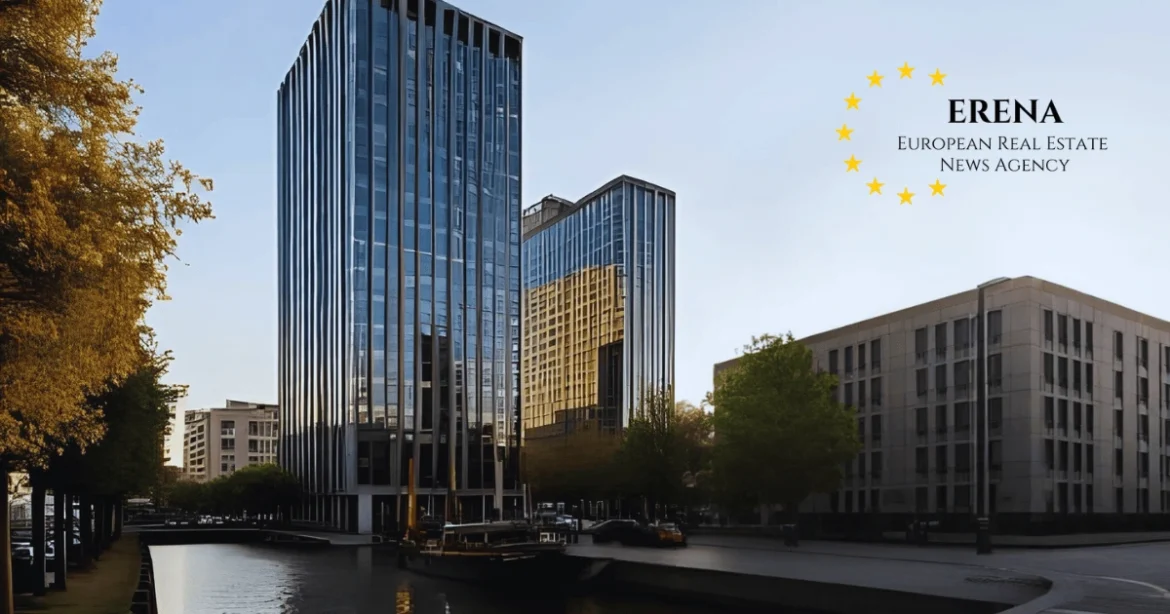Dutch bank Rabobank and pension investment manager PGGM have entered into a €1 billion credit risk-sharing agreement covering a portfolio of commercial real estate loans across the Netherlands. This sets a new benchmark for European financial institutions managing property exposure in a tighter lending environment.
A New Model for Managing Risk
The deal is an SRT-type transaction that allows Rabobank to retain ownership of its real estate loan book while transferring part of the credit risk to PGGM. The use of a structured finance instrument will bring regulatory capital relief for the lender and allow continued financing to corporate and real estate clients in the Netherlands.
“We are excited that this is our first transaction on SRT fully backed by commercial real estate,” said Peter de Bruin, Head of Real Estate Finance at Rabobank. “It strengthens our ability to assist clients and effectively manage our balance sheet.”
Barend van Drooge, Head of Credit Risk Sharing at PGGM, said the partnership aligns with the fund’s long-term investment strategy:
“Our partnership with Rabobank enhances our approach to balancing risk, return and sustainability. This enables us to responsibly and transparently invest in real estate in the Netherlands.”
PGGM, one of the largest pension asset managers in the Netherlands with more than €240 billion under management, has over four years of experience in credit risk-sharing investments. This new transaction diversifies PGGM’s portfolio efficiently and allows it to gain exposure to the domestic property sector.
Market Conditions Shaping the Deal
The pact comes as European real estate markets remain cautious after two years of interest rate hikes and valuation recalibrations. Numerous lenders are looking for creative structures to reduce balance sheet exposure without halting the credit supply to crucial sectors.
In the Netherlands, prime logistics yields now range from 4.75% to 5.25%, supported by limited new development and strong tenant demand. Prime office assets in Amsterdam are trading at yields of 5%–5.5%, while older properties with poor energy performance are coming under pressure. The return of shoppers and tourists is gradually helping retail and hospitality properties recover.
Across Europe, investment volumes in Q3 2025 were about €45.6 billion, the weakest third quarter in over a decade. Analysts, however, point to signs of stabilisation in 2026, especially in the living and hotel sectors, as investors reposition into segments offering durable income.
Why It Matters
The Rabobank–PGGM structure shows that banks are increasingly using synthetic risk transfers rather than asset sales to manage capital more flexibly. These arrangements allow institutions to offset potential losses with long-term investors such as pension funds while maintaining client relationships and origination capacity.
According to the European Banking Authority, SRTs are quickly becoming a key instrument in the capital optimisation toolbox, helping lenders free up regulatory capital and sustain lending while bridging the gap between economic and regulatory capital.
Market analysts note that the deal represents a disciplined approach by Dutch banks, combining prudence with innovation to sustain credit flow into sectors still requiring liquidity. The move underscores how financial institutions are prioritising capital efficiency while supporting the broader real estate market.
A Blueprint for Europe’s Real Estate Recovery
The pact sets a new standard for responsible balance sheet management in European real estate finance. By transferring part of its exposure to PGGM, Rabobank keeps its lending channels open for borrowers while supporting liquidity in a constrained market.
If policy rates stay around 4% through 2026, similar deals are likely to multiply across Europe. The next lending cycle could be defined by selective confidence, sustainable capital, and shared responsibility — the foundation for rebuilding Europe’s property market.

